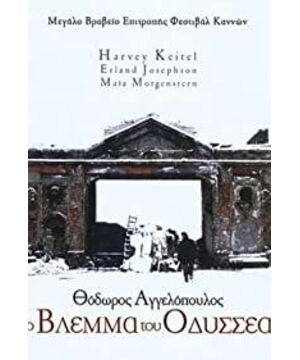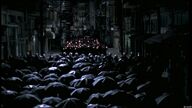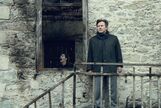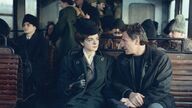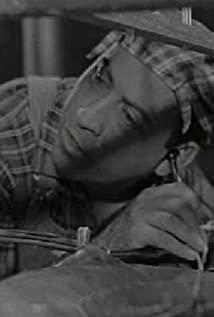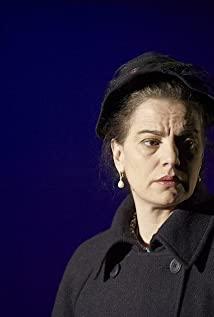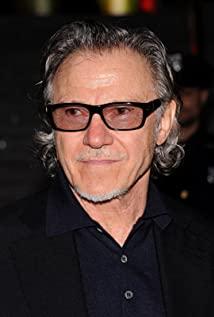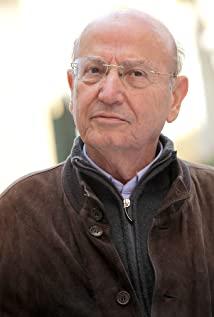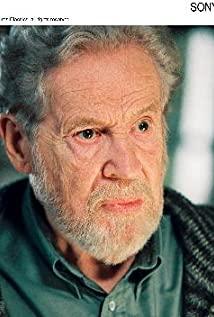Wen_Fa Bu Zhan Ni "God first created travel, and then doubt and homesickness". This is what the protagonist’s friend said to him in [Ulysses’s Gaze]. This is like a footnote to An Zhe's movie and even his life. If the "search" theme of the "Silent Trilogy" is based on travel as a witness to history, love and the silence of God, then in the "Border Trilogy" counted by [Stork Bird Pai], An Zhe is undoubtedly The focus is on doubt and homesickness. In [Stork bird hesitating], the politician played by Mastroianni published a book of "The Melancholy of the End of the Century" and then went missing, throwing a heavy myth to the world-"The dream of a new community, really Can it be achieved?" At [Ulysses' gaze], An Zhe set up a filmmaker who returned home, and questioned history itself through his pursuit and discovery of history. Someone commented on An Zhe in the ring-shaped ruins, “In his movies, characters can be absent, stories can be absent, and the only thing that will not be absent is history." History is An Zhe’s inescapable obsession, but it also bears his inability to let go. Of sorrow. His birth coincided with the fall of Greece and the catastrophe of Europa. An Zhe was born in 1935. His early childhood memories are full of the roar of the Luftwaffe and the panic of the occupation of Athens. And dictatorship, civil war, political struggle... have all become nightmares in his growing up time and time again. And all of this turned into weak and strong echoes, which will gradually reappear in his works in the future. In [Ulysses' gaze], the protagonist A witnesses the desolation of the Balkans, where there are war leftovers, and people go to empty homes everywhere. An Zhe expressed a kind of pessimism about the motive of making this film. The history of Europe in the twentieth century opened the curtain in the flames of war. The Sarajevo incident was the first to bear the brunt. When people stood before the finish line of the twentieth century, they found that Sarajevo was still a barrier that could not be crossed. When artillery and nature became one, the entire Balkan region has become the "European gunpowder barrel" in people's eyes. An Zhe silently examined everything around him and "translated" it into his movie, just like A's pain when looking straight into the camera at the end, turning it into a poem of inaction. Why didn't Europe learn anything from the Sarajevo incident, why did people make the same mistakes repeatedly and caused the same dispute twice in Sarajevo? So what exactly has history taught us? Even the despair in [Ulysses' gaze] was silent. A Greek director returned to his homeland after leaving home for many years, hoping to retrieve the lost film footage from the beginning of this century. That set of films recorded the scenery of the Balkans at the beginning of the century. Of course, it was also accompanied by that The war of the ages. Only at the end, the director who found the film found that his surroundings were just like a reprint from the beginning of the century. He wanted to gaze at the past, but found that the object he wanted to gaze at was beside him. For this set of films, he traveled to most of the Balkan Peninsula, intending to pursue the images of the past, but witnessed the desolation of the present world. Wars, wanderings, refugees, parades... It seems that after a hundred years, the human condition has not changed at all, and history overlaps with the present at this moment. At the beginning of the film, a long shot of black-and-white connected with color, past dialogue and the current moment explained A's engine. His first stop was a small town in Greece. Raincoats, black umbrellas and crowds are just like punctuation marks in Anzhe's movies, and a rainy night is especially suitable for their debut. When the protagonist came to a winding square, through the sound in the painting, we learned that [Stork's Hesitation] was being screened there. At this time, the film in the film and the film have a dialogue. The movie then started a confrontation-the crowd holding candlelights and the police holding riot gear. In the previous work [Stork Sting], the foot that was hanging on the border turned into a conflict in the film and appeared again. Compared with the wandering of leaving home, perhaps returning to a hometown that no longer exists is a deeper scar. The old woman who appeared later crossed the border between Greece and Albania to visit her sister-"35 years". Yes, time did not kill Miss Nian by luck, but caused a town to be destroyed. Facing the ruins in front of her, she didn't even know how to set the direction of her legs. In the apocalyptic scene, some people are silently reminiscing about the past, while others are looking forward to the end in madness, just like the old driver in the taxi ride A said, "You know what? Greece is about to die. We are A race on the verge of extinction.” This is a verse from the Greek poet George Sephiris, but it came out of the taxi driver. The driver is played by the famous Greek comedian Thanasis at the time Vengos, An Zhe used a misplaced humor to express particularly deep the dissolution of anger and disappointment over time. We followed Director A across the Greek border, shuttled through the escape of others, immersed in the director's own childhood memories, wandering on the Danube, and finally he found the film he wanted to find, but he was even more confused than before. The title Ulysses is the Roman name of Odysseus. As we all know, Odysseus is the hero of Homer's epic poem "Odyssey". For Anzhe, who was originally a Greek, he likes and is used to drawing nourishment from ancient Greek mythology. He once said: "The Greeks grew up touching and kissing those relics and cultural relics. I have been working hard to pull those myths from the highest position to represent ordinary people, because people are the writers and writers of history. Creator." In his feature film debut [Reconstruction], the man who was killed by his wife and sympathizer when he returned to his hometown was a representation of the "Death of Agamemnon". And this [The Gaze of Ulysses] can be regarded as a parody of "Odyssey". In the movie, A's trip around the Balkans is not exactly Odysseus's ten years of wandering at sea. Of course, this is by no means the first time Anzhe "expropriated" the text of "Odyssey". The previous [Syser Island Trip] and [Beekeeper] have the meaning of returning home and going on the road respectively. . It's just that Anzhe's movies never appear in epic happiness. You know, when Odysseus returned to his hometown, he was reunited with his wife and children, and eliminated all suitors, and has lived a happy life ever since. And when Anzhe's movies develop to the end, there are only depressions or even sorrows that are nowhere to be placed. The troika is like Bergman has Sven and Bjornstrand, Hou Xiaoxian has Zhu Tianwen and Lin Qiang, and since the beginning of [Syser Island Tour], An Zhe has also formed his own set of fixed teams. The most famous of these is the musician Elena Kalandro, also from Greece. In 1982, Elaine and Anzhe met at Thessaloniki Film Festival. After that, Elaine’s melody has never been absent in Anzhe’s movies. Ai Linni and An Zhe cooperate in this way: An Zhe will first inform Ai Lin Ni of her own movie concept, and then the two will act separately. Sometimes, Ellene’s music has already been written, and Anzhe’s movie has not yet started shooting. An Zhe sometimes conceives images based on Ellene’s soundtrack, which sounds familiar, right? Lionel and Morricone did the same back then. When working with [Ulysses’ Gaze], An Zhe thought about using the accordion he loves from the beginning. He thought that the accordion was suitable for the wandering travelers or homeless refugees in his movie. Strong homesickness The accordion is very important in Anzhe’s early masterpiece [Wandering Artist]. In [The Gaze of Ulysses], Elena refers to Greek music, Yugoslav music, and Sarajevo music, because these are all regions involved in the plot of the movie. As for the music that finally appeared, Elena also has her own interpretation, such as the mixed symphony in the film (ie "Ulysses' Theme"), she said: "I hope to use music to condense all the moments of human and national freedom, and use music to express humanistic care." Photographer George Avanitis is Anzhe's most steadfast partner for decades. Ruo Yi's cooperation has long since made the two souls connected. It can be said that An Zhe is able to achieve those ingenious long shots, his contribution cannot be underestimated, and most of them can be called "spectacles". Although An Zhe's long shots have made him stand out from the crowd, his ability to control alone is not enough for An Zhe to win his current position in history. The "Wonderful" lens is the one that best reflects the skill of Director An Zhe. From [Reconstruction]’s push-pull shot of Li Geshan shouting, to [Dust of Time], the crowd listened to the broadcast of Stalin’s death in silence. An Zhe always has imagination, courage and execution in his handling and selection of space. He can use the lens to show enough dignity and grandeur, and can also show amazing subtlety. In [The Gaze of Ulysses], there are naturally a lot of big-handed works such as the "Marriage Across the Shore" in [Stork Bird Healing] or the "Man in Yellow Clothes Climbing Telegraph Pole" at the end: such as the director who returned to his hometown. A, first weaving among the black umbrellas in the square, people are as still as the snow scene of [Landscape in the fog], as if waiting for the opening of some kind of ceremony, then A witnessed another police The collision between the people-the crowd holding the candlelight and the policeman holding the shield; another example is taking a taxi to leave A in Greece and witnessing the vagrant people standing in the snow, they are also motionless with their backs to the camera , Looking into the distance, the whole lens reveals a bleakness, and then, as far as the car window is concerned, there are some dilapidated street scenes and refugees fleeing the war. The lethality of war is clear from these aspects alone. It must be emphasized that Anzhe's very formal scene design has once again created a visual shock. This is a "craft" that digital technology can never match. And when it comes to delicate scheduling, An Zhe is even more at ease: For example, at the beginning, he explained the death of the director who lost the scroll, and through the mouth of the director’s assistant, he explained the previous situation, and then Harvey Keitel stepped into the painting and participated in it. The whole narrative leads to the pursuit of the three-volume negative film, which is light and light, and grafts two time and space; another example is the world-famous "Prom Chronicle", which began in the new year of 1945 when the protagonist returned home. It lasted until 1950, and finally ended with a family portrait. During this period, the times changed, with constant intrusions from outside forces and family members leaving, both the aesthetics of form and the impact of the overall tragedy. Similar scenes ignoring the rules of time and space, and Director A being checked at the border station. In that scene, An Zhe changed the light to excavate a The tunnel between the present and the past allows A to experience the humiliation and exile of the image author Yanakis he is looking for in fantasy. This technique seems very similar to a stage play, but An Zhe has already had some explanation of his own. He once realized a problem when he was reading history books, that is, when the story develops to the present, history is forgotten. What he wants to create is a kind of "dialectical relationship": yesterday’s history is not the past, but the present, which gave birth to An Zhe’s unique “wormhole lens”, which connects the past and the present, allowing the two time and space to interact , Collision, and then fusion. Besides, the screenwriter of [Ulysses's Gaze] is also the strong backing of Anzhe in the middle and late stages-Tonino Guerra. This "obscured" Italian poet actually has a lot of background, and he has participated in many well-known European art films. The directors he has worked with are also very dazzling, from Fellini and Antonioni in Italy to Tarkovsky abroad. And An Zhe was the key partner of Gera's collaboration in the 1990s. This screenwriter, who has experienced life in the Nazi concentration camps, is particularly adept at grand themes that touch human beings. In 2012, he and An Zhe passed away, making An Zhe's failure to complete the "Greek Trilogy" an eternal regret. Gera's status as a poet makes his cooperation with Anzhe very harmonious. Gera likes Socratic questioning, which helps Anzhe realize his limitations and potential. The two people who love poetry have injected an immeasurable poetry into the film. The poet’s blood has a story like this: There is a movie screening every night in the Paradise Cinema. Chaplin was shown on the first day, and the cinema was full of laughter; Godard was released on the second day, and the cinema was full of boos. Sound; An Zhe was released on the third day. As a result, the cinema was full of snoring. An Zhe is a recognized master and a recognized master of hypnosis. It is said that in 2004, Kim Kidd slept halfway through the screening of the Berlin Film Festival [Crying Prairie]. When he woke up, he found that the film was less than half of the time, so he got up and left. People who first saw An Zhe may have such a sigh that his movies are too slow, too long, and too long, but this is really the rhythm that belongs to An Zhe. Throughout the ages, directors who can create their own style while shooting masterpieces have been rare, and it is even more difficult to achieve this style of style. And An Zhe happened to be the one who did just that. People call him "the author director among author directors". This [Ulysses' gaze] is naturally a movie full of Anzhe's blood. An Zhe said that all his works after [Reconstruction] are extensions or variations of [Reconstruction]. For example, the motif of wandering and searching, in [especially The gaze of Lisis has been extended, and the heavy thinking of life and history is still continued in this film. Especially, the humming old ballad "Little Lemon Tree..." that echoed at the beginning and end of [Reconstruction] also appeared at the end of the movie like an easter egg and turned into a director played by Harvey Keitel. A poem chanted by A facing the camera-"I will tell you/you have lemon trees in your garden". Harvey Keitel, who played hard in [Ulysses’s Gaze], once said in an interview: "If I were to list the'five greatest directors in my mind', Theo should be able to move forward. Three." But unfortunately, his performance in Anzhe's movies can't make people empathize. When he recites the verse with tears, the audience will remember the heart-piercing roar he had witnessed when he had witnessed the death of innocent young creatures, but what he felt more often was a kind of alienation. This kind of alienation is derived from An Zhe’s movie style, because his long shots with a strong sense of design rarely cater to the subtle performances of actors, and it is destined that actors can only be his "chess pieces". It's hard to have too much emotional load. The people in Anzhe's movies are probably only slightly better than the completely de-emotional characters in Bresson's movies. The event is the main display object of Anzhe's movies, and the characters are just the elements that make up the event. The characters are not without emotion, but the emotional impact brought by the movie is often lagging. When we are watching, we may be shocked by the spectacle, or admired by the strange position of the camera, but the grief that the characters endure Or joy, it needs to be experienced with reason. But those lagging emotional impacts are extremely heavy. For example, the old woman standing in the empty square in the film, such as the homeless person in the snow, such as the innocent creature who died under the gun. Anzhe once said that Orson Wells is very important to him, and he was also influenced by some American musicals and early Japanese movies. Considering Anzhe's sports long shots and "chess"-like characters, it is not so surprising that he would praise Mizoguchi Kenji and [Death Prison Escape]. It is worth mentioning that An Zhe, who rarely shows the fascination complex in his own films, also showed his tribute to the idol in [Ulysses's Gaze]. In that night scene wandering on the street, after his friends paid respect to Che Guevara and the May student wave, A raised his glass and blurted out: "King Mao Nao, King Dreyer, and Orson Wells". And the last movie in the theater destroyed by the war was Chaplin. Lights dimmed In 2009, [Dust of Time] premiered at the Berlin Film Festival, and An Zhe took the second part of his "Greek Trilogy" to participate in the main competition. The new millennium is about to usher in its tenth year. Even An Zhe, who "Never Want a Studio", uses computer special effects. You can say that time has smoothed the edges and corners of a person, but you can also say that time has added a person's wisdom. An Zhe’s attitude towards politics is no longer the radical left-wing youth of the year. His films pay more attention to the fate of individuals in changes. Perhaps he really feels the futile of idealism—"Don’t ask the film to do what it can’t do. In a sense, the only thing a movie can do is to make the passage of time sweet." This is too much like what a weather-beaten person who can see through the world would say, but who can pat his chest to refute him. Art may not change the world, she can only give people a little comfort at a certain time, nothing more. [Ulysses’ gaze] was born more than ten years ago when Anzhe said the above words. At that time, Anzhe was very energetic and was participating in the "52 Seconds Game" of [Lumière and the Forty Master]. "When asked why you made a movie, he smiled and responded calmly: "In order to soften the time that passed." When most directors were hesitating on this question (the seniority is like Jacques Levitt faced this When asking questions, I had to use a smirk to hide his embarrassment), but An Zhe answered with confidence. In fact, what he experienced at that time was his most suspicious moment in history. Although he hasn't reached the realm of "the only thing a movie can do is to make the passage of time sweet" more than ten years later, he can no longer believe in the magnificent influence of politics and art. Especially, after he truly realized the cruelty and absurdity of history, and this cruelty and absurdity are repeating endlessly. Anzhe’s skepticism about the political prospects of Greece and Europe was deeply imprinted in [Ulysses’s gaze]. Many years later, he said frankly: “Our generation feels that they can change the world, but 2000 Around the year, I think this dream is over." In fact, in the movie, he has already recorded a certain loss of himself, just like two old friends holding wine glasses in the cold night to respect their once-burning dreams, "To the days in Paris, to the world that will not change, To our lost dreams". Let me go back to the phrase "The only thing a movie can do is to make the passing of time sweet." That is Anzhe’s poetic description of the movie, so how do we describe [Ulysses’s gaze]? This question is actually equivalent to how we should evaluate An Zhe’s films. We might as well use his description of poems as an answer: “There are some poems, they are very sad, the whole is tragedy, but the very powerful verses make you feel There is a sad warmth flowing through your body." And the sad warmth , It is the "sweetness" that An Zhe's movie bestows on us. (Originally published in "Watching Movies")
View more about Ulysses' Gaze reviews


